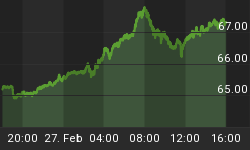Today's Ifo business sentiment index from Germany, combined with Monday's business confidence index from Belgium, points to a still-strong level of growth in the Euro-zone economy through the remainder of this year. All told, there is plenty of reason to assume that the ECB will hike interest rates 25bp on August 3, and again on October 5. But, as we've noted often before, the Euro-zone growth outlook for 2007 remains uncertain.
As expected, the July Ifo main business climate index eased back from the 15-year high of 106.8 seen in June, but came in at a still-high 105.6. The forward-looking expectations sub-index dropped from 104.2 to 102.6, but this is still far higher than the 96.1 seen a year ago. The retailing component fell to -5.9 (-0.3 in June), suggesting that the World Cup retailing bounce may wear off fairly quickly. The manufacturing component declined to 19.1 from the lofty 22.2 seen in June, but as with the main index this is still a high reading (especially when compared with the -28.0 of July 2005).

The combination of persistently high oil prices, the stronger euro, rate hike expectations, and worries about the impact of next year's three percentage-point VAT hike are weighing more on business sentiment. What is surprising is that the Ifo readings remain so relatively robust in the face of so many concerns. Last week's ZEW survey of German investor expectations showed a sharp drop in investor morale, with the indicator tumbling from a reading of 37.8 in June to 15.1 in July. The current conditions indicator rose to a new five-and-a-half year high, in keeping with the widespread assumption than German Q2 GDP growth will come in around double the 0.4% q-o-q seen in Q1. (The flash estimate of Q2 GDP is due August 14, with details to come on August 24.)
All told, Germany's exporters remain fairly confident. Tomorrow's GfK consumer sentiment survey and the June retail sales report (due July 31) will tell us whether the nascent recovery in German household consumption detected in the spring has strengthened into the summer.
The Belgian business confidence index also pulled back from last month's record high, as sentiment in the manufacturing and retail sectors both dropped off. The overall index almost halved to 5.4 from June's astonishing 10.1, with the manufacturing sub-component falling from 10.6 to 5.6 and the retailing sub-component sliding even further, from 11.7 to 3.0. As with the Ifo, however, this correction from June's historical high was not surprising, and the overall readings remain firmly in positive territory and above the long-term average.

Thanks to Belgium's strong trade ties with its neighbors, the business confidence index is a leading indicator - about six months out - for GDP growth in the Euro-zone as a whole. The past few months' readings point to a good year for the Euro-zone. The question remains, however, where are things headed in 2007? If the Belgian leading indicator continues to slide over the next 2-3 months, we're looking at much weaker Euro-zone GDP growth next year.
And where does all this leave the ECB? Across the 'zone growth remains robust, inflation remains well above the "2% or just below" target, and liquidity remains abundant. Germany's HICP rate (EU-harmonized consumer price inflation) edged up to 2.1% in July (2.0% in June). As Germany accounts for around 30% of the Euro-zone inflation index this implies that July's headline inflation number will remain high (the flash estimate comes out July 31).

More disconcerting for the 18 members of the ECB's Governing Council will be the latest survey of Euro-zone household inflation expectations from the European Commission, which surged to a four-year high in July. Is this because the German consumer is worried about the impact of that VAT hike next year? Or does it point to a more generalized rise in expectations across the 12-member Euro-zone? The more hawkish members of the Council have spent the past couple of weeks reiterating that inflation risks are rising, and as we noted on July 6 ("ECB Turns Hawkish") the data and the speeches point to an August 3 rate hike.















